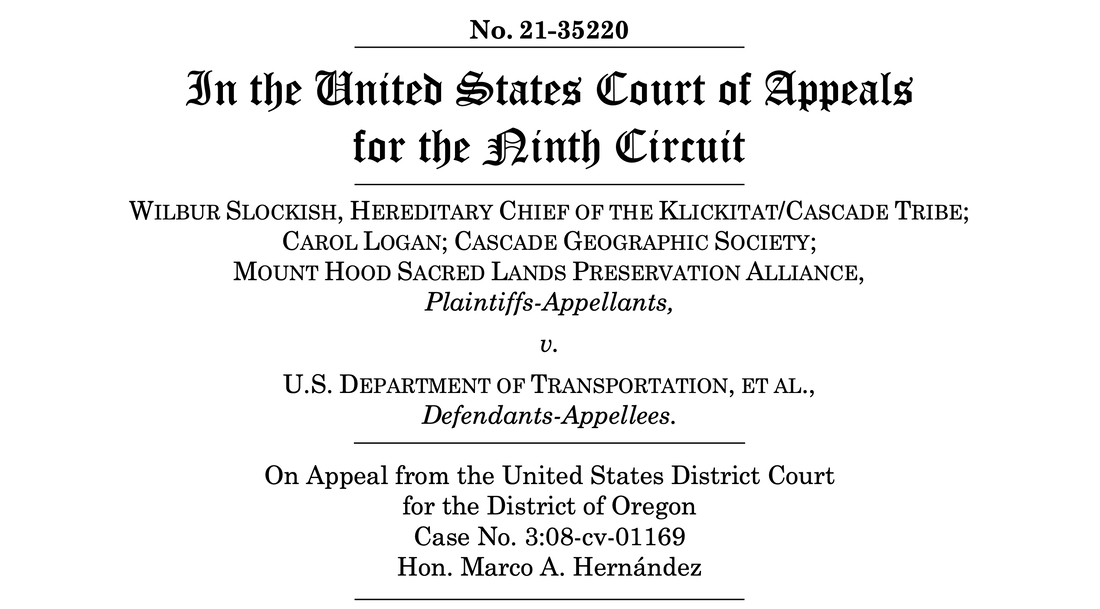|
When the government widened U.S. Highway 26 in Eastern Oregon, it took care to protect wetlands and avoid encroaching on a tattoo parlor. But when it encountered The Place of the Big Trees, an ancient stone altar and grove of trees sacred to the Yakima Nation and the Confederated Tribes of Grand Ronde, the government deployed its bulldozers and destroyed the site.
After the destruction, the elders of these tribes appealed to the government to return the rocks that made up their altar and replant the medicinal plants they had uprooted. The U.S. District Court for the District of Oregon instead found that the U.S. Federal Highway Administration had not violated the religious rights of the tribes under the Religious Freedom Restoration Act (RFRA). A court panel further did not see that it had the authority, or a need, to attempt remediation. Now the Protect The First Foundation is joining with the Jewish Coalition for Religious Liberty, the Sikh Coalition and the American Islamic Congress to stand up for RFRA and the rights of religious minorities. The coalition filed an amicus brief Tuesday urging the Ninth Circuit Court of Appeals to hear the case and consider ways to remediate and restore the site. The coalition demonstrated that “when the government cannot grant a religious claimant’s ideal accommodation, it bears the burden of proving that there are no possible remedies.” As it stands, the message of the lower court and the government is, essentially, to like it or lump it. With secular claims in the Ninth Circuit, the fact that a harm has been completed does not render it moot. The lower panel violated this precedent in creating a lower standard for religious plaintiffs than for secular plaintiffs. Simply put: No crying over spilled milk. Overall, the panel shrugged off the law’s requirement that it explore other ways to rectify the injury the government inflicted. The brief states: “If left standing, the panel decision would gut RFRA, turning it from a landmark ‘super statute’ – passed to provide robust remedies for religious believers like plaintiffs who are prevented from exercising their faith – to a statute only occasionally able to protect religious belief.” Finally, somehow the lower court ruling found that it lacked the authority to craft a case-specific remedy as required by RFRA. In so doing, the panel created a precedent that hinders RFRA’s ability to protect the very people it was designed to help – religious minorities. “These concerns are all the more prevalent when it comes to non-Western and Indigenous faiths,” the brief states. “In contrast to mainstream religions, which ‘already enjoy de facto protection’ through their ability to influence the political sphere … many minority faiths must turn to the courts for protection. But in doing so, these groups face a significant obstacle: explaining the nature of their beliefs and injuries to a judiciary that is mostly drawn from mainstream faith communities.” The coalition is dismayed that the panel believes it cannot summon the authority to order the government to replace a one-and-a-half-foot stone altar, replace trees, or remove an embankment. “It is difficult to understand the actions of the government and the courts except as willful ignorance and outright contempt for the tribes’ faith,” said Gene Schaerr, general counsel of The Protect The First Foundation. “For all Americans, there is a danger in allowing courts to ignore RFRA’s broad grant of authority to redress government interference with religious practice. The Ninth should hear this case to guarantee the right of free exercise of religion for all Americans.” Comments are closed.
|
Archives
June 2024
Categories
All
|
ABOUT |
ISSUES |
TAKE ACTION |



 RSS Feed
RSS Feed